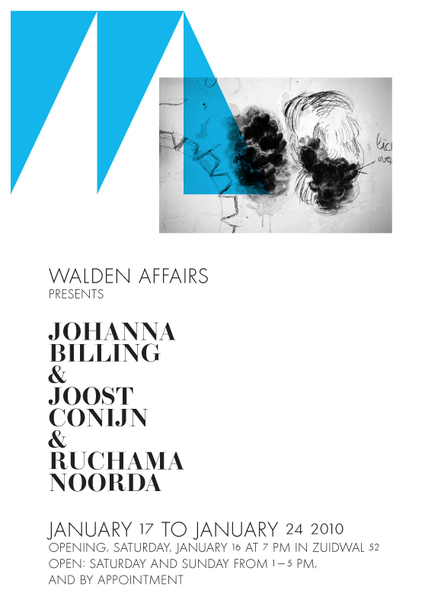Ruchama Noorda
In Walden Affairs Ruchama Noorda will show her new installation 'Internal Colonization'. The title refers to a publication by writer and psychiatrist Fredrik van Eeden called 'Binnenlandsche Kolonisatie' (1901). This text deals with the possibility of raising self-sustaining and cooperative colonies and is inspired on the ideas of Henry David Thoreau; these colonies would eventually multiply and alter society from within.
The project continues Ruchama Noorda's fascination with early 20th century world-views which incorporated political, practical, and spiritual notions of life into a total work of art. Within this framework the artist takes up the role of an 'emotional indicator' of society - an idealistic and also romantic idea of her position within society. The resulting work is impregnated with a desire for ideological truths as inspired by the commitment of particular movements to social change according to their ideals.
www.ruchama.com/weblog
Ruchama Noorda's installation is accompanied by two thematically related video works:
Johanna Billing
The video installation 'Magical World' by Johanna Billing was shot in a free after-school center in Dubrava, a suburb of Zagreb, Croatia. Never-ending footage of children rehearsing the 1968 Rotary Connection song Magical World, written by Sidney Barnes, acts as an anthem for an uncertain future and presents a glimpse of a country in transition. The children deliver a haunting and hopeful rendition with reservation and pride. Billing portrays a micro-moment, which mirrors a community still recovering from the break-up of the former Yugoslavia. makeithappen.org
Joost Conijn
Joost Conijn's video work 'Siddieqa, Firdaus, Abdallah, Soelayman, Moestafa, Hawwa and Dzoel-kifl' shows the daily life of seven children of a native dutch family that lives according to the Islam. The youngest is three, the oldest fourteen. They reside under the smoke of Amsterdam on the fringes of a squatted dockland site. The film follows the children as they explore the rough terrain that is being converted into commercial properties. Each day, the children undertake another voyage of exploration. They build huts, strip a caravan, find a tree. One day, they set off to visit the shelves with sweets and snacks at the local petrol station, the nearest outpost of civilisation. The children grow up in great freedom, undisturbed by the conventions of the social manifesto. They are uninhibited in their play, inventive at finding their way. But set against their autonomy there exists a real danger of exclusion. The film is more than a critical reflection on autonomy, an ode to the poetry of the wayward inimitability. joostconijn.org
